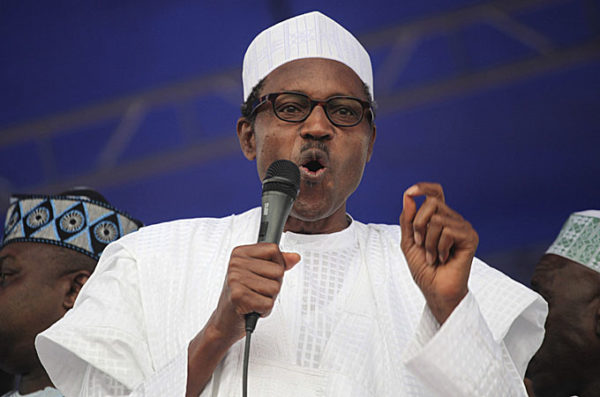Despite series of attacks on its offices and assets, President Muhammadu Buhari has said that the Independent National Electoral Commission (INEC), has no reason not to conduct free, fair and credible elections in 2023.
According to Buhari he has approved all that was requested by the electoral umpire.
The president made this disclosure during an interactive session entitled, “A conversation with President Muhammadu Buhari of Nigeria,’’ co-hosted by the United State Institute of Peace (USIP), the International Republican Institute, the National Endowment for Democracy, and the International Foundation for Electoral Systems.
He asserted his confidence in INEC’s readiness for the 2023 elections.
“INEC is ready because I made sure they were given all the resources they asked for because I don’t want any excuses that they were denied funds by the government,” Buhari said while responding to a question on the preparedness of the Commission.
‘‘Since 2015, the conduct of our elections continues to steadily improve. From the 2019 general elections, the by-elections and the off-season elections in Edo, Ekiti, Anambra and Osun States were conducted in largely improved contexts to the satisfaction of contestants and voters.
‘‘That is what we hope for in 2023. Through the observatory roles of the International Community, the credibility of the elections can be further enhanced to make the acceptability of the outcome to the contestants and political parties a non-issue.’’
Meanwhile, the president on Friday in Washington D.C said Nigeria’s agricultural revolution has led to the creation of over 13 million direct and indirect jobs in the last seven and half years.
The Nigerian leader advised western nations not to be in a rush to eliminate the usage of fossil fuels in a bid to ensure a healthy climate.
Furthermore, he stated that Nigeria’s economy has registered positive growth in the last two quarters despite the gloomy outlook in the global economy, and the war in Ukraine.
President Buhari also cautioned western nations on the frivolous issuance of travel advisories on Nigeria, urging the international media to be more objective in its reportage of the country.
He told the international community that despite the non-nonchalant actions and attitudes of some of its friends and allies, Nigeria is nonetheless winning the war on terrorism, making significant progress in dealing with the threats to Nigeria’s and the sub-regions safety and survival.
The Nigerian leader also called on the United States to do more to improve the quality of governance in the West African sub-region, warning that the survival of democracy is being challenged in the aftermath of the democratic setbacks witnessed in Mali, Guinea and Burkina Faso.
Expounding on steps taken by his administration to expand Nigeria’s economy since coming into power in 2015, the President said focused interventions in agriculture driven by the Central Bank of Nigeria transitioned the country from being a net importer of rice, Nigeria’s staple food, to becoming self-sufficient in its production.
‘‘This same scheme has financed the establishment and operations of our fifty (50) integrated rice mills.
‘‘It has also financed over 4.5 million smallholder farmers, ensured the cultivation of almost 6 million hectares of farmland and almost 700 large-scale agricultural projects have been funded.
‘‘This Agricultural revolution has led to the creation of over 13m direct and indirect jobs,’’ he said.
President Buhari also told the Washington D.C Community of global thought leaders and Democracy Advocacy Groups that the focus on the Agricultural Sector placed Nigeria in a better position to handle the systemic shock caused by both COVID-19 and the Russia-Ukraine war on global food supply chains and attendant price spikes.
He added that the revolution in the sector has improved the country’s capacity in the agro-allied sector, making it more efficient in enhancing and maximizing production yields and post-harvest losses.
‘‘The non-oil sector remains the future of our economy and I hope successive governments will consolidate on the gains we have recorded under my leadership.
‘‘You will agree with me that the Russia-Ukraine war has compelled many economies to carry out reforms and re-adjust policies to cope with the challenges posed by the conflict.
ALSO READ:Nigeria’s Debt Sustainability Strategy Hanging By Thin Line-Afrinvest
‘‘In this regard, we are paying more attention now to energy transmission and distribution through targeted collaboration with global companies like Siemens to improve our efficiency in the Power Value Chain,’’ he said.
But some Nigerians insist that providing resources alone to INEC without adequate security would be meaningless, adding that the federal government should do more on security as Nigerians are still living in fear as insecurity is still on the increase.
